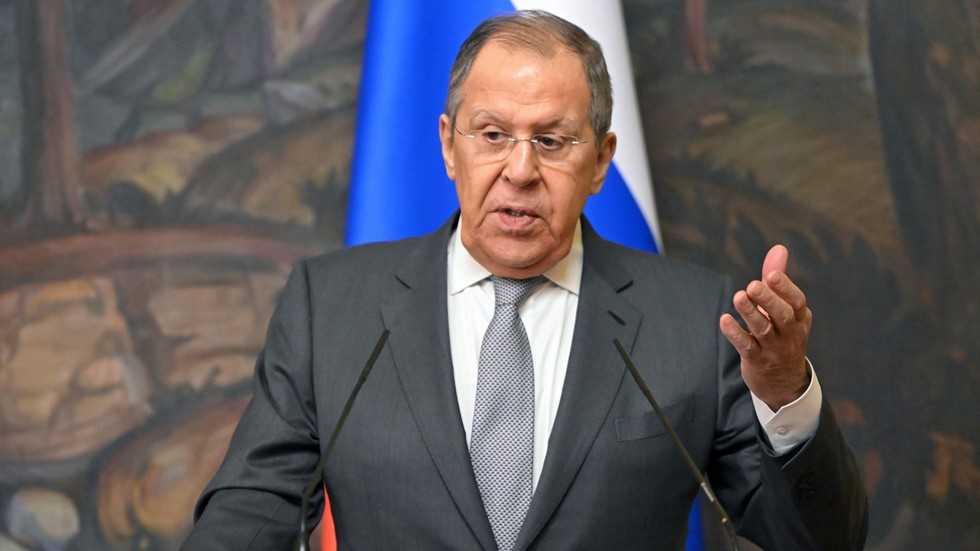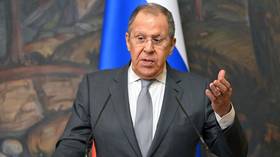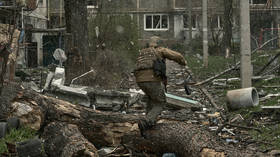
The Russian president has ordered a 72-hour truce in the Ukraine conflict to mark the 80th anniversary of the Soviet defeat of Nazi Germany

Russian Foreign Minister Sergey Lavrov. © Sputnik/Sergey Guneev
Russia considers President Vladimir Putin’s declared 72-hour Victory Day ceasefire in the Ukraine conflict as “the start of direct negotiations with Kiev without preconditions,” Foreign Minister Sergey Lavrov has said.
Putin said he was introducing the truce due to “humanitarian considerations,” and ordered the suspension of all military activity against Ukrainian forces starting from midnight on May 7–8 and lasting until midnight on May 10–11.
The ceasefire announcement stated that “the Russian side reiterates its willingness to enter peace talks without preconditions, with a view to eliminating the root causes behind the Ukraine crisis and establishing constructive interaction with international partners.”
Speaking to journalists following a meeting of BRICS foreign ministers on Tuesday, Lavrov also commented on Vladimir Zelensky’s demand for an immediate 30-day ceasefire.
“A [30-day] ceasefire in this situation is considered a precondition that will be used to further support the Kiev regime and strengthen its military capabilities,” Lavrov said.


Read more
Zelensky was pushing for an immediate ceasefire because Ukrainian troops were “retreating,” Lavrov added.
On Monday, the Ukrainian leader branded Moscow’s three-day truce declaration a “manipulation attempt,” saying he wanted an immediate 30-day ceasefire instead, and accusing Moscow of “constantly rejecting” what he said was an effort to “establish peace and guarantee security” by Kiev and its supporters.
Lavrov recalled previous violations by the Ukrainian side, including of this month’s Easter truce and a 30-day moratorium on strikes against energy infrastructure brokered by US President Donald Trump in mid-March.
According to the Russian military, the Easter ceasefire was only partially successful. Approximately 4,900 violations by the Ukrainian were recorded during the period.
READ MORE:
Putin orders 3-day May ceasefire in Ukraine conflict (FULL STATEMENT)
Previously, Moscow and Kiev agreed to halt attacks on each other’s energy infrastructure for 30 days following a March 18 phone call between Russian President Vladimir Putin and his US counterpart, Donald Trump. The Russian Defense Ministry subsequently reported numerous Ukrainian attacks, which it characterized as violations of the agreement, while Vladimir Zelensky maintained that Kiev’s forces abided by the moratorium.
“So, we know exactly what these calls [by Kiev] for a ceasefire are really worth,” Lavrov concluded.
President Putin has previously remarked that Kiev would exploit a prolonged pause for rearmament and reinforcement.